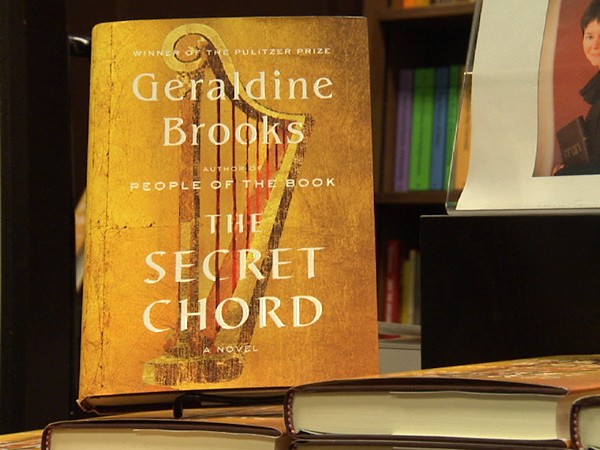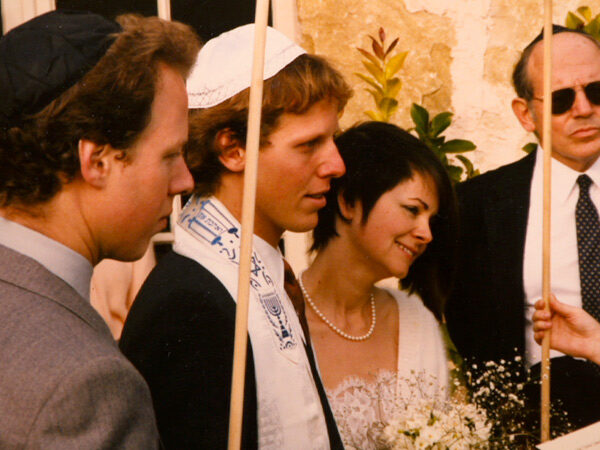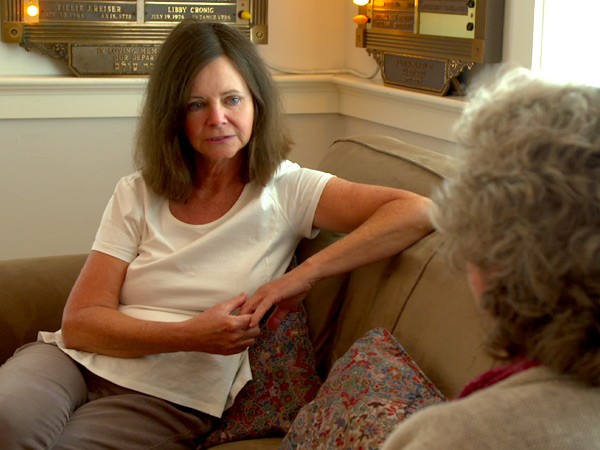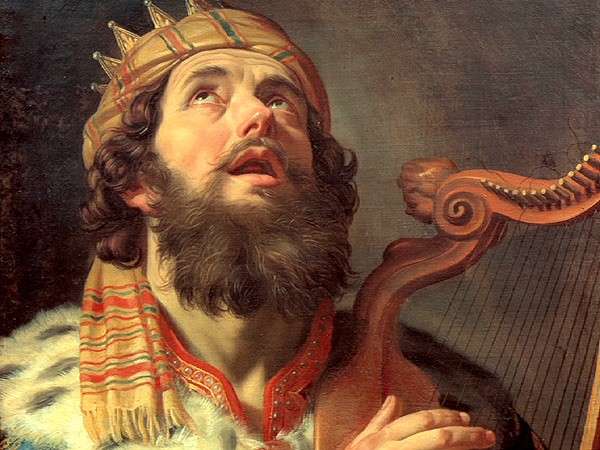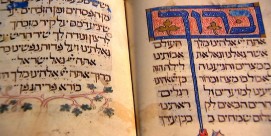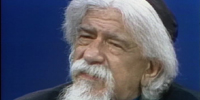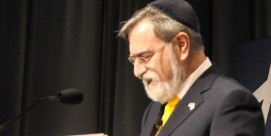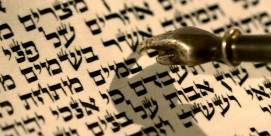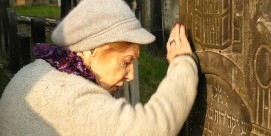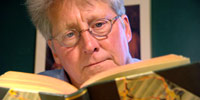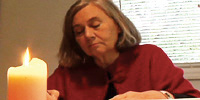In This Episode << SLIDE LEFT TO SEE ADDITIONAL SEGMENTS
Novelist Geraldine Brooks
Pulitzer Prize-winning author Geraldine Brooks has written a new historical novel, The Secret Chord, which focuses on the biblical King David. Managing editor Kim Lawton visited Brooks at her home on Martha’s Vineyard to talk about the writer’s conversion to Judaism, her sense of Jewish spirituality, and what she learned while researching the Hebrew prophets and the story of David, whose life, she says, embodies “the dark and the light of the human condition.”
Excerpt from The Secret Chord by Geraldine Brooks:
Being a father, having an heir, seemed to add an extra dimension to David. He had always been a vivid, animating presence in any room he entered. But now he would come from visiting the boy, whom he had named Amnon, crackling with even greater energy and force. He had been an engaged listener, ready to learn what any man might have to offer in discussion, but now there was an additional depth to his questions, a more far-reaching vision behind his decisions. He thought now beyond the span of years and into a future that glittered ahead into centuries. It’s one thing, I suppose to have a prophet tell you that you will found a dynasty. Now, it seemed, he allowed himself to truly believe it.
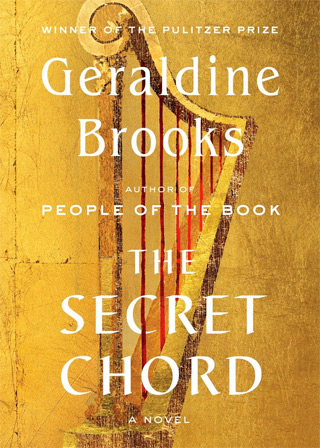
…
As the wars dwindled to skirmishes and our strength grew, David as able to spend less time with military commanders and more with the engineers and overseers who were fanning out through the land, digging cisterns, making roads, fortifying, connecting and generally making a nation out of our scattered people.
It was a time when any man could seek and find justice. I think that David’s own experiences as an outlaw, a falsely accused man, had made him resolve to deal justly with his subject now that he had the power to do so. In those years, he never tired of hearing suits, and would listen for hours to all sides of a grievance, taking pleasure in teasing out the threads of a dispute and weighing all the evidence laid before him. Any who felt dissatisfied by the decisions of the elders at their own town gates could appeal their matters to David himself, and know they would be fairly heard.
He composed some of his best music at this time, training choirs to praise the Name in musical rites that drew great crowds to worship. He would join with the choirs at such times, his soaring voice carrying the melody, enriching the harmony, his face lifted up to the heavens and lit by the ecstasy of his ever-renewing bond with the divine.
…
David would wear no purple cloth, no symbols of his kingship, when he went to greet the ark. In its presence, we were all of us servants.
We waited at the city gates as the ark approached. It was sohorhim, the hour of light, when the outriders came into view, cresting the Mount of Olives. The olive trees had turned their leaves so that the bright undersides shimmered. David gave a great sigh of longing, almost a groan. And then, in a wincing flash of brightness, the sunlight caught the gilded wingtips of the cherubim atop the ark itself. The people cheered. David gave the sign, and the choirs he had assembled burst into song. Cymbals, systrums, flutes, lyres, drums—every musician the city possessed—and there were hundreds—had been called to raise a joyful noise to the heavens. Soon, the procession was in the valley, the curtain that shielded the ark rippling in the warm wind. We could hear the voices of the singing men and women, chanting the words David had composed for the occasion: Give praise, proclaim his Name/Proclaim his marvels to the nations/Sing to him, sing praise to him…
David, standing just in front of me, could not keep still. He held his arms out from his sides, his fingers stretching down to the earth, quivering as if some great energy were passing up and through them. He was breathing fast and deep. Suddenly, he raised his chin, and gave a cry—like a paean, but higher, sweeter—rich notes that filled every heart with gladness. The he was loping down the hill, as wild as a boy, as ardent as a lover, his arms outstretched, sprinting toward the ark. When he reached it, he cast himself down in full prostration, his arms stretched out as if in the widest embrace. It was a lover’s moment, between him and the Name, the great One who had blessed him, kept him, and brought him to this moment. I knew how he prayed: I had felt its ardency. Now all his people felt it. I could hear the sighs and the cries all around me, as the power of it moved and stirred the crowd. When David rose to his feet, he did so as if lifted by strong and tenders arms. Then he began to dance.

